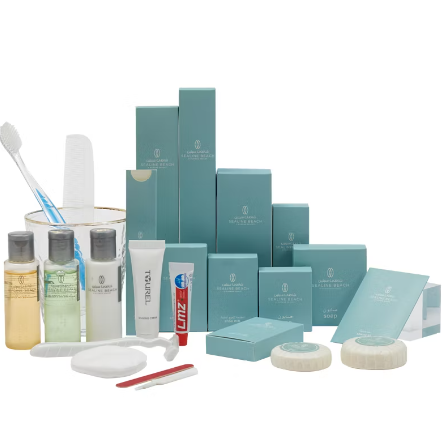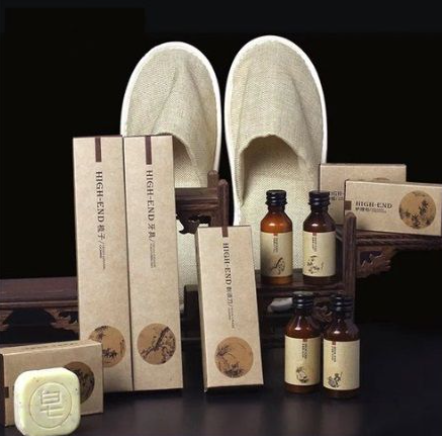In the hospitality industry, the demand for luxury hotel amenities is growing rapidly. Today’s guests seek sophistication, comfort, and sustainability, driving manufacturers to adopt innovative techniques. From advanced materials to eco-conscious processes, these approaches elevate the quality of amenities while minimizing environmental impact. Below, we explore the cutting-edge methods redefining the production of luxury hotel amenities.

The Changing Landscape of Luxury Hotel Amenities
Rising Guest Expectations
Luxury travelers expect more than just aesthetics; they value functionality, innovation, and responsibility. Guests today look for:
- High-quality materials in toiletries and accessories.
- Products that align with sustainability goals.
- Unique and personalized amenities that enhance their experience.
The Influence of Sustainability
Luxury no longer excludes sustainability. Hotels increasingly demand eco-friendly products, prompting manufacturers to integrate sustainable practices into their production lines. This shift has encouraged innovation across every aspect of manufacturing, from materials to packaging.
Key Innovative Manufacturing Techniques
Advanced Material Science
Material innovation lies at the heart of luxurious yet sustainable hotel amenities. Key breakthroughs include:
1. Bioplastics and Natural Alternatives
Bioplastics made from plant-based sources like cornstarch and sugarcane are replacing traditional plastics. These materials are biodegradable and eco-friendly while retaining the high-quality feel required for luxury products.
2. Organic Ingredients in Toiletries
Shampoos, soaps, and lotions now feature organic and vegan ingredients. Natural additives such as essential oils, aloe vera, and shea butter not only ensure premium quality but also cater to environmentally conscious guests.
3. Durable, Sustainable Textiles
Bathrobes, slippers, and towels crafted from bamboo fibers and organic cotton offer a blend of luxury and sustainability. These materials are soft, durable, and renewable, making them ideal for high-end accommodations.
Automation and Precision Manufacturing
Automation enhances both quality and efficiency in the production of hotel amenities. State-of-the-art machinery ensures:
- Uniformity and precision in products such as soap bars and lotion bottles.
- Faster production cycles, meeting the high demand for premium amenities.
- Reduced waste through optimized processes and material usage.
Customization and Personalization
The ability to personalize amenities is a hallmark of luxury. Manufacturers are leveraging digital technology and AI-driven solutions to create tailored designs. Examples include:
- Engraving guest names or hotel logos on toiletries.
- Offering a selection of scents or product variations based on guest preferences.
These techniques not only elevate the guest experience but also help hotels differentiate themselves in a competitive market.

Sustainable Manufacturing Practices
Energy-Efficient Production
Many manufacturers now employ energy-efficient systems to minimize their carbon footprints. Solar-powered factories and green energy sources are increasingly common, aligning with sustainability goals.
Water Conservation Techniques
Producing toiletries and textiles often requires significant amounts of water. Innovative systems recycle and purify water during manufacturing, drastically reducing consumption.
Zero-Waste Initiatives
The zero-waste philosophy is transforming production processes. Manufacturers focus on:
- Repurposing byproducts from production.
- Designing refillable and reusable packaging for toiletries.
By adopting these strategies, companies create high-end amenities while maintaining environmental responsibility.
The Role of Technology in Innovation
3D Printing for Unique Designs
3D printing enables the creation of intricate and customized designs for items like soap, packaging, and decor. This technology ensures precision while allowing creative freedom in designing luxurious amenities.
Internet of Things (IoT) in Manufacturing
IoT technology streamlines production by enabling real-time monitoring and control of manufacturing processes. This ensures quality, minimizes downtime, and optimizes resource usage.
Nanotechnology in Skincare Products
Nanotechnology enhances the effectiveness of skincare products by delivering active ingredients deep into the skin. For example, lotions and serums infused with nano-sized particles ensure better absorption and superior results, setting a new standard for luxury.

Benefits of Innovative Techniques
Enhancing Guest Satisfaction
Cutting-edge methods ensure amenities are not only luxurious but also functional and appealing. From silky-soft towels to personalized toiletries, these innovations leave a lasting impression on guests.
Aligning with Environmental Goals
Luxury hotels often lead by example in sustainability efforts. Partnering with manufacturers who adopt green practices reinforces their commitment to the environment.
Reducing Costs Over Time
While innovation often requires upfront investment, the long-term benefits are significant. Energy-efficient systems, refillable products, and zero-waste initiatives lower costs over time, benefiting both manufacturers and hotels.
Challenges in Implementing New Techniques
Balancing Luxury and Sustainability
Achieving the perfect balance between opulence and environmental responsibility can be tricky. Some materials or techniques may compromise either quality or eco-friendliness, requiring careful consideration.
High Initial Costs
Innovative manufacturing techniques often involve significant investments in research, technology, and infrastructure. Smaller companies may struggle to adopt these methods without external support.
Adapting to Market Trends
The luxury market is dynamic, with trends changing frequently. Manufacturers must stay agile and innovative to meet evolving demands.
Examples of Innovative Luxury Amenities
Eco-Friendly Bath Products
Brands like L’Occitane and Aesop have introduced sustainable product lines featuring biodegradable packaging and organic ingredients.
Bamboo-Based Accessories
Hotels increasingly use bamboo toothbrushes, combs, and razors to replace traditional plastic items, offering both style and sustainability.
Luxury Spa Sets
High-end spa sets now include personalized skincare products enhanced with nanotechnology and premium organic components, setting a new standard for luxury.

The Future of Luxury Hotel Amenities
The future of luxury hotel amenities lies in continued innovation. As guest expectations evolve, manufacturers must embrace new technologies and sustainable practices. Emerging trends likely to shape the industry include:
- Artificial Intelligence for Customization: AI could provide ultra-personalized amenities based on individual guest preferences.
- Bioengineered Materials: Advancements in bioengineering may lead to entirely new, sustainable materials for toiletries and textiles.
- Circular Economy Models: Manufacturers might develop products designed for reuse, recycling, and repurposing, achieving a fully circular economy.
By adopting these trends, the hospitality industry will continue redefining luxury while contributing to a greener planet.
Conclusion
Innovative manufacturing techniques are revolutionizing the production of luxury hotel amenities. From eco-friendly materials to cutting-edge technology, these advancements cater to the modern traveler’s expectations of both luxury and sustainability. As the industry evolves, manufacturers who invest in innovation will set new benchmarks, creating exceptional guest experiences while championing environmental stewardship.
